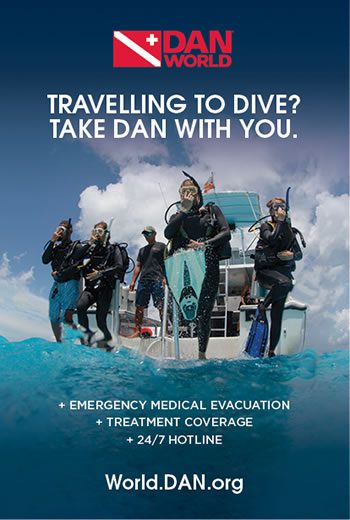With otherworldly landscapes and phenomenal diving, Madagascar is the ideal adventure for anyone seeking a blend of varied scuba diving, unique wildlife, and remote national parks. This 12-day journey will delight divers, with both wreck and reef dive sites available, many home to rays, guitarfish, leopard sharks, and turtles.
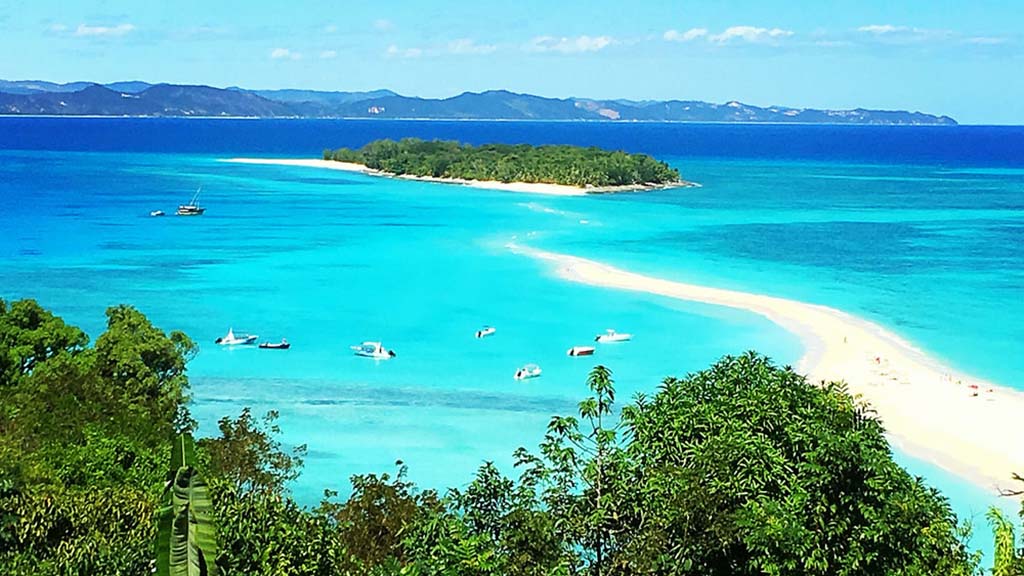
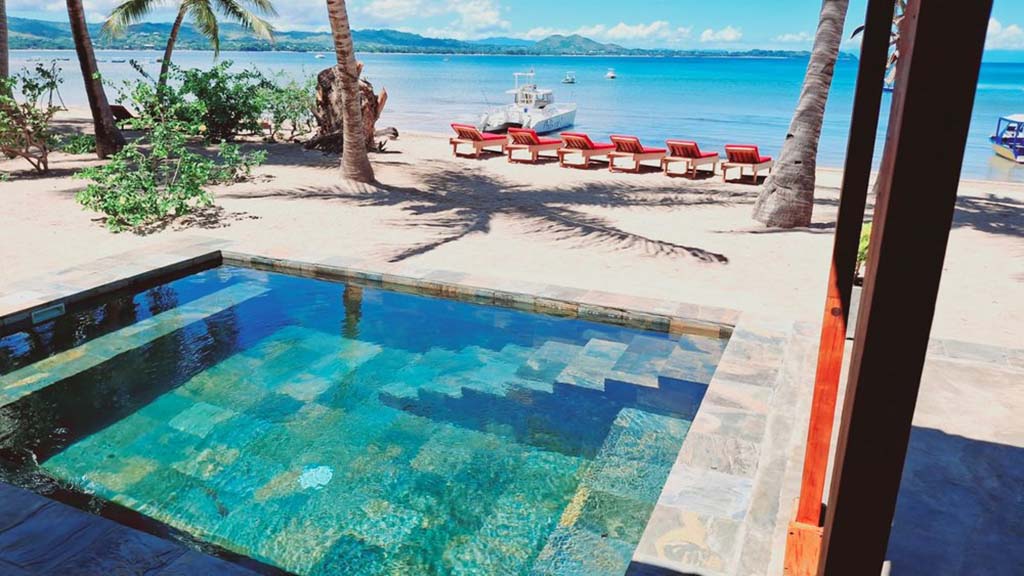

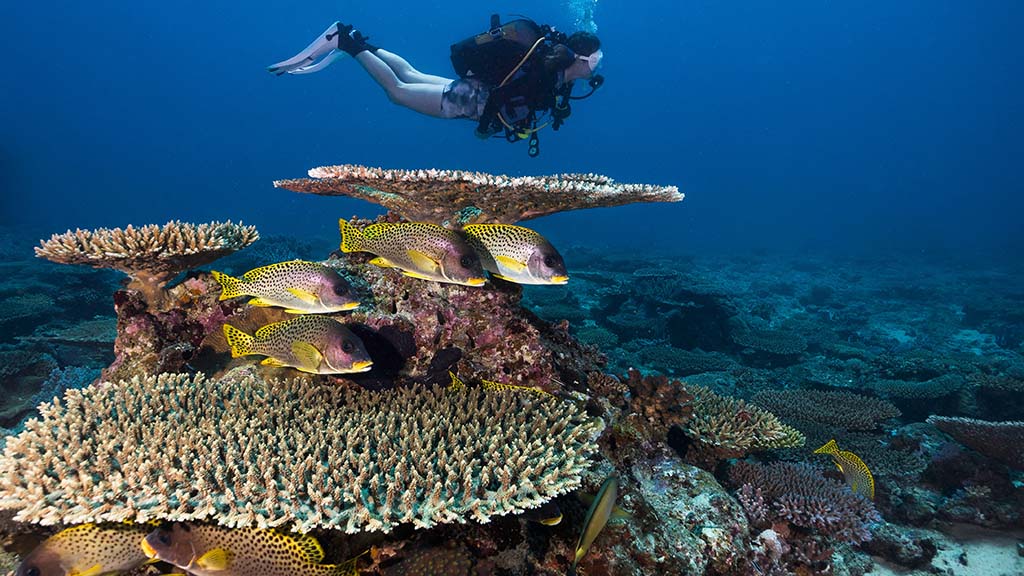

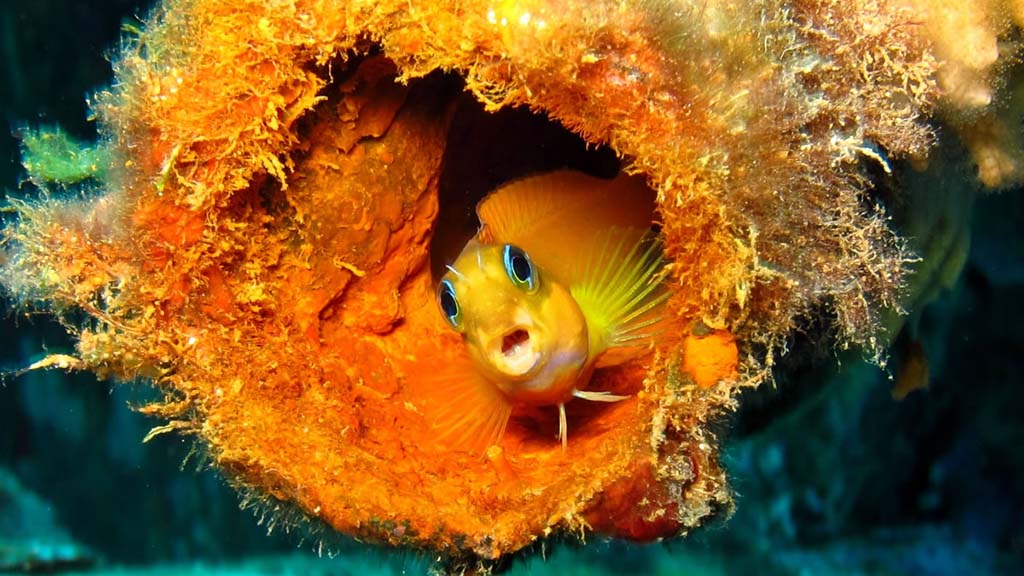
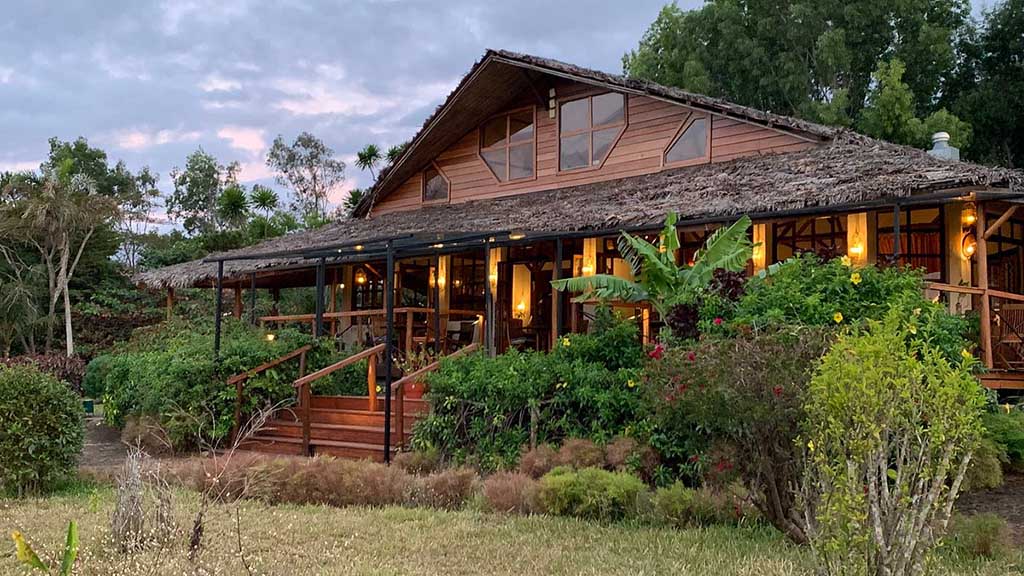
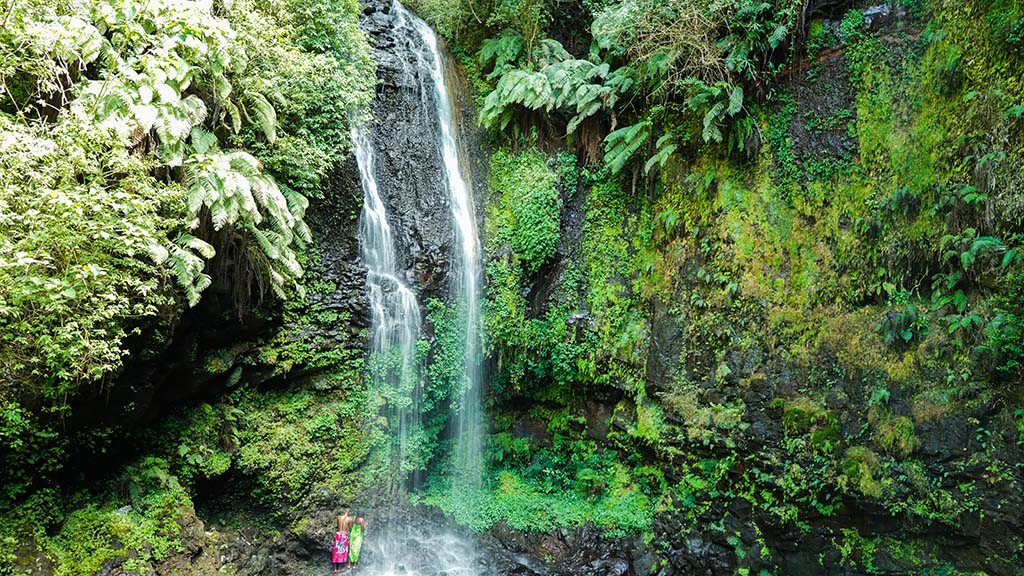
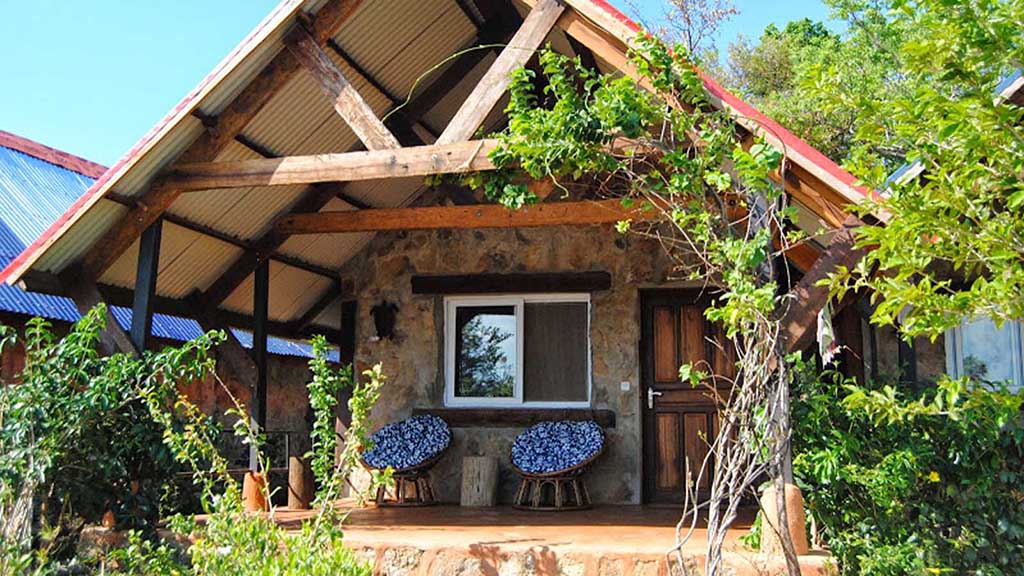
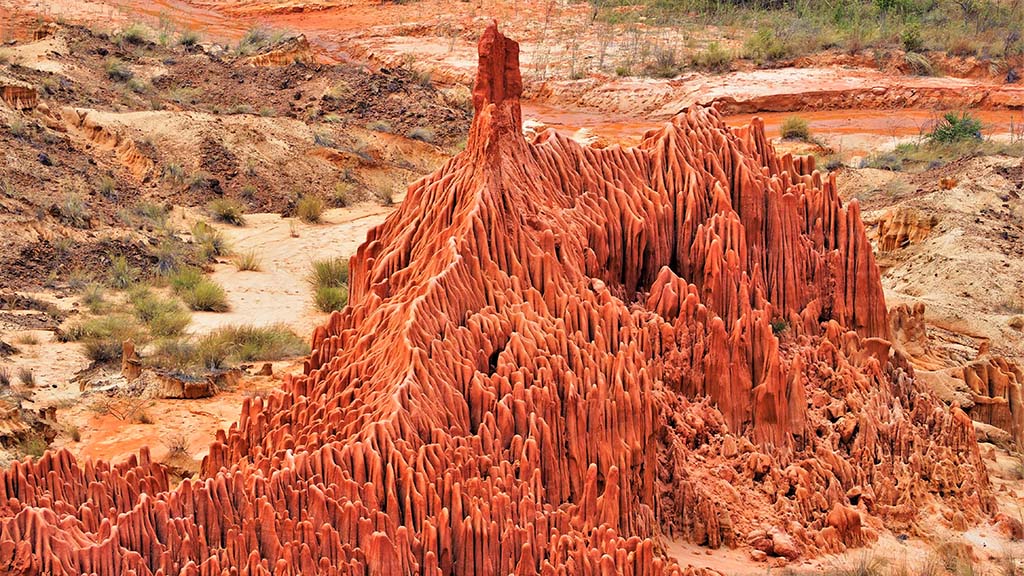
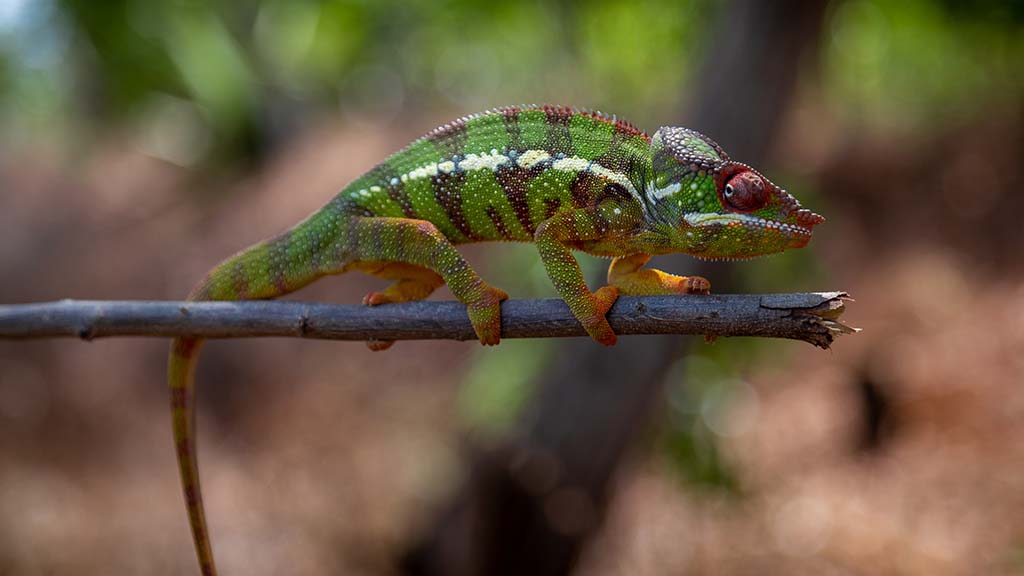
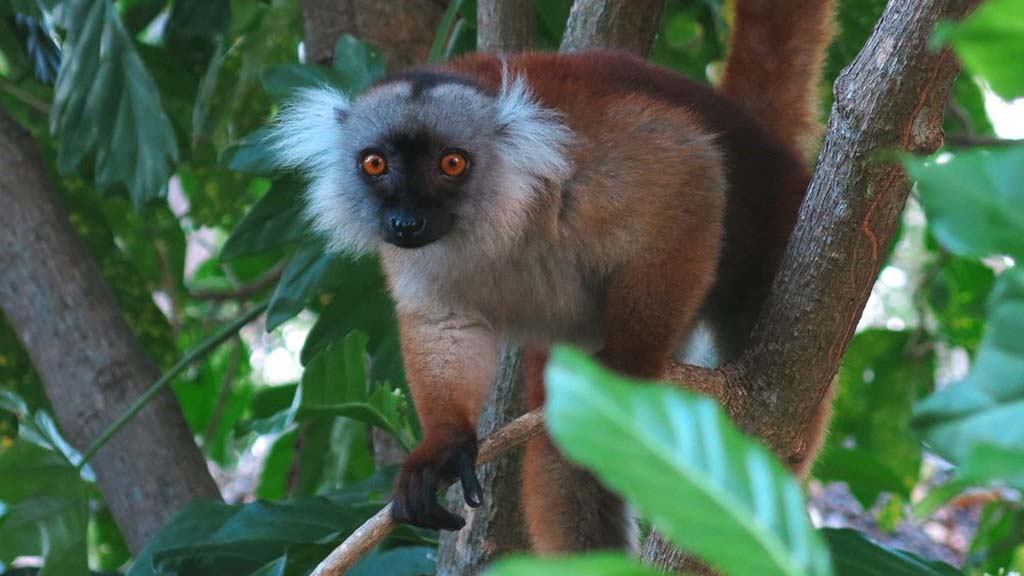
May through March is Madagascar’s dry season, bringing along pleasant weather and optimal dive visibility.
Not only will guests enjoy ten dives at Nosy Sakatia, home to some of the country’s best reefs, but this experience also takes in some of the country’s most surreal landscapes. After diving, you’ll visit Tsingy Rouge, an epic formation of red laterite rock pinnacles and Ankarana Special Reserve, a protected region known for its limestone tsingy formations and the crowned lemur, who thrive in this seemingly challenging landscape.
| Location | Accommodation | Meal Plan | Activities | |
|---|---|---|---|---|
| Day 1 to 6 | Nosy Sakatia | Sakatia Lodge | Breakfast & dinner | Transfer from Fascene Airport 10 dives including tanks, weights and dive guide Excursions to Nosy Komba and Nosy Tanikely |
| Day 7-8 | Ankarana Special Reserve | Ankarana Lodge | Breakfast & picnic lunch | Transfer to Ankarana Lodge Excursion to Ankarana Reserve |
| Day 9 | Joffreville | Nature Lodge | Breakfast & picnic lunch | Excursions to Tsingy Rouge and Amber Mountain National Park |
| Day 10 | Antisiranana | Grand Hotel Diego | Breakfast & picnic lunch | Additional excursion to Amber Mountain National Park |
| Day 11-12 | Antananarivo | Palissandre Hotel & Spa | Daily Breakfast | Transit Accommodation and transfer to Fascene Airport |
Nosy Sakatia
Situated off the western coast of Nosy Be Island, Nosy Sakatia is a tiny little picturesque island in Madagascar. Measuring roughly 6 km long by 2 km wide (~6 km²), it lies just off Nosy Be—about a 10–20-minute boat ride. It is only lightly inhabited with three small villages: Ampasindava, Ampasimena, and Antanabe. Known as the “Island of Orchids,” it’s part of a protected ecosystem under Madagascar’s environmental classification—untouched by mass tourism and with no roads, only walking paths.
Its name blends “saka” (obstacle) and “tia” (love), referring to a myth of lovers separated by the sea—one on Nosy Be, the other on Sakatia. This slice of paradise features pristine white-sand beaches lapped by impossibly blue waters. The island is also home to lush forests, an array of endemic wildlife and numerous viewpoints which offer stunning views over the pristine coastline. Visitors can look forward to diving in the calm crystal-clear waters, through the colourful coral reefs, and enjoying the peaceful laidback charm of this tropical hideaway.
Over five days, you will get to enjoy 8 dives, with two dives a day as you explore a variety of vibrant and diverse underwater environments. You will be diving with Sakatia Lodge Dive Centre, Nosy Be’s best dive centre. On your last day, you will have a ‘dry’ day, before flying, and head to nearby Nosy Komba to visit the lemurs there, and the local craft village, before enjoying exploring the beautiful island of Nosy Tanikely for the remainder of the day.
Ankarana Reserve
Ankarana consists of an “island” of tsingy, or limestone karst pinnacles, and a forest which is penetrated by numerous caves and canyons. Some of the largest caves have collapsed, forming isolated pockets of river-fed forest with their own perfectly protected flora and fauna. These pockets are home to many animals. Ankarana Reserve is a dramatic and ancient karst landscape offering rugged hiking, hidden caves, rich wildlife, and landscapes unlike anywhere else in Madagascar.
Joffreville
Neighbouring the Amber Mountain National Park, the Joffreville village lies four kilometres from its entrance. This former French colonial town offers comfortable accommodation options in character-filled heritage buildings. The surrounding landscape features forested mountains, valleys and lush woodlands. This sleepy town serves as an excellent base for those wishing to explore the beautiful surrounds of the Amber Mountain National Park, which is home to several endemic species. Visitors can look forward to browsing a smattering of small shops, viewing the old church and strolling through the streets of the town dotted with fruit stalls selling locally grown seasonal fruit such as avocados, mangos, litchis, guavas and bananas.
Tsingy Rouge
Tsingy Rouge is located in the Diana region, Madagascar. This historic sandstone formation is a must see when visiting Madagascar. The formation is made up of hundreds of small sandstone needles which were only discovered in the 20th century when a landslide uncovered this beautiful natural wonder. The needles get worn away by wind and weather, but new ones appear again and again. There are picnic sites available on-site where guests can dine and relax.

Amber Mountain National Park (Montagne d’Ambre National Park)
Cascading waterfalls, glassy lakes and idyllic swimming holes are just a few of the reasons to visit Amber Mountain National Park. Extending across 185 square kilometres at Madagascar’s northern tip, the park is also a hub of biodiversity and easily accessible, making it one of the country’s popular visitor destinations. The park is home to 25 mammal species (eight species of lemurs among them), over 70 bird species and a profusion of reptiles and amphibians, including the diminutive stump-tailed chameleon and emerald green tree boas. On your way in or out of Amber Mountain, it’s worth stopping at the village of Joffreville to steep yourself in some local Malagasy culture.

Antsiranana (formerly Diego Suarez)
The French colonial city of Antsiranana is home to the second largest natural bay in the world, stunning views of the Indian Ocean and its very own picturesque Sugarloaf Mountain. Visitors can wander through the wide sleepy streets and explore what remains of the city’s colonial buildings, discover the old market, and absorb a culture that draws its influences from indigenous tribes, Creole, Indians and Comorians amongst others. Antsiranana is surrounded by some of the country’s most beautiful landscapes and is also close to two UNESCO recognised national parks, making it a great destination for nature lovers.
Antananarivo
Antananarivo is Madagascar’s capital city, perched on top of a mountain range close to several nature reserves, including Tsingy de Bemaraha, with its fantastical limestone spikes. Founded in 1625, it has a rich historical heritage that is complemented by scenic landscapes traversed with a multitude of hiking routes. The city is also known for its bubbly nightlife, with live music played regularly at various clubs, bars and hotels.
Sakatia Lodge
Perched above a beach at the narrowest part of the little island, the lodge boasts the best, and most professional, dive centre in the area. The snorkelling right in front of the lodge is great, with the Turtle Sanctuary (where Green Turtles hang out), is within and easy swimming distance.

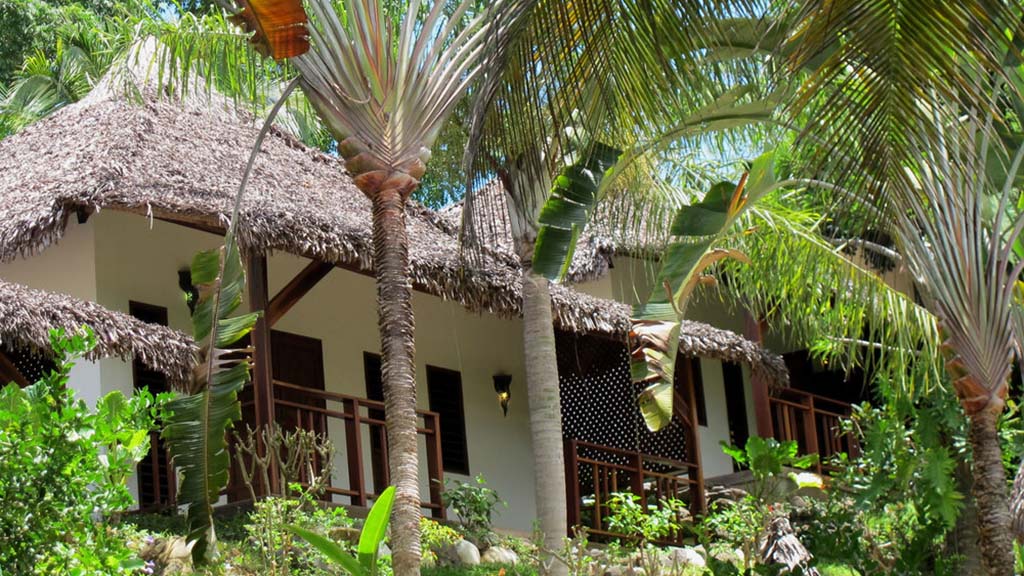
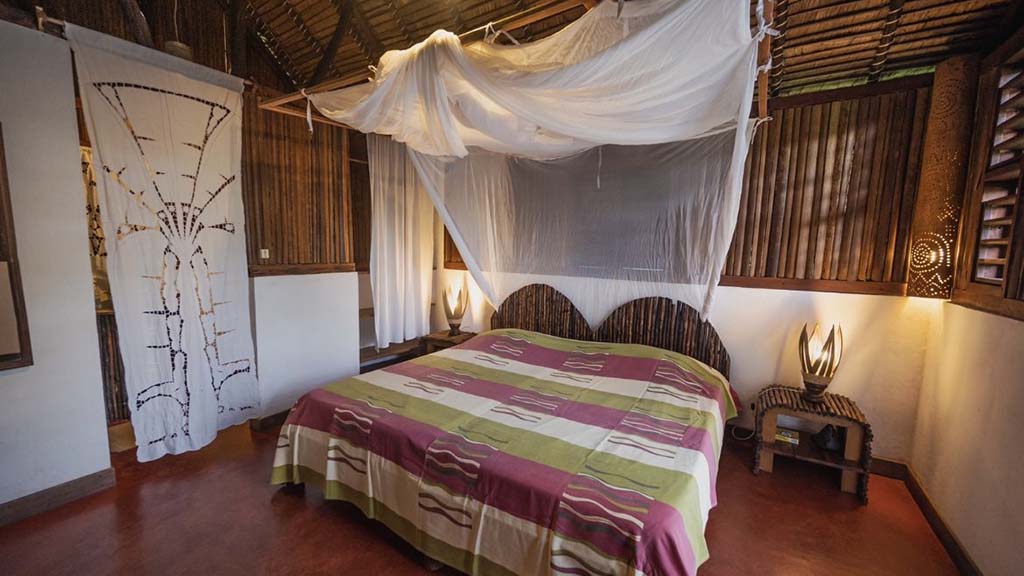
Ankarana Lodge
This peaceful resort, just outside Ankarana Reserve, was rebuilt in 2011. It features eight bungalows, each with ensuite bathrooms and air conditioning. Guests can enjoy wildlife watching here, along with a swimming pool and a picturesque bar and restaurant.

Nature Lodge
This small eco-lodge offers 12 thatched-roof chalets with a private deck, double or twin beds, mosquito nets, and ensuite bathrooms. An outdoor terrace bar and indoor dining room serve traditional Malagasy and French cuisine.

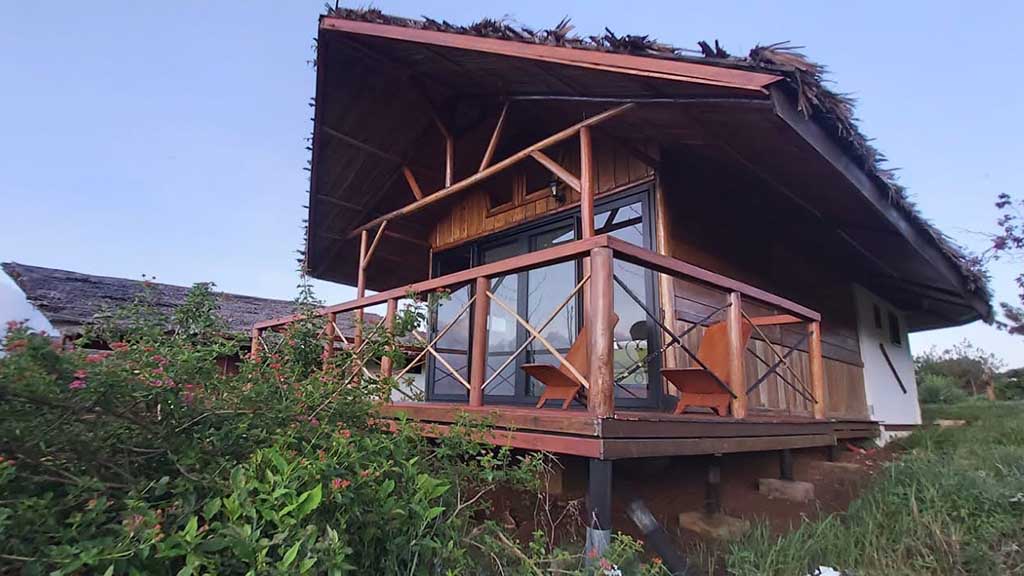
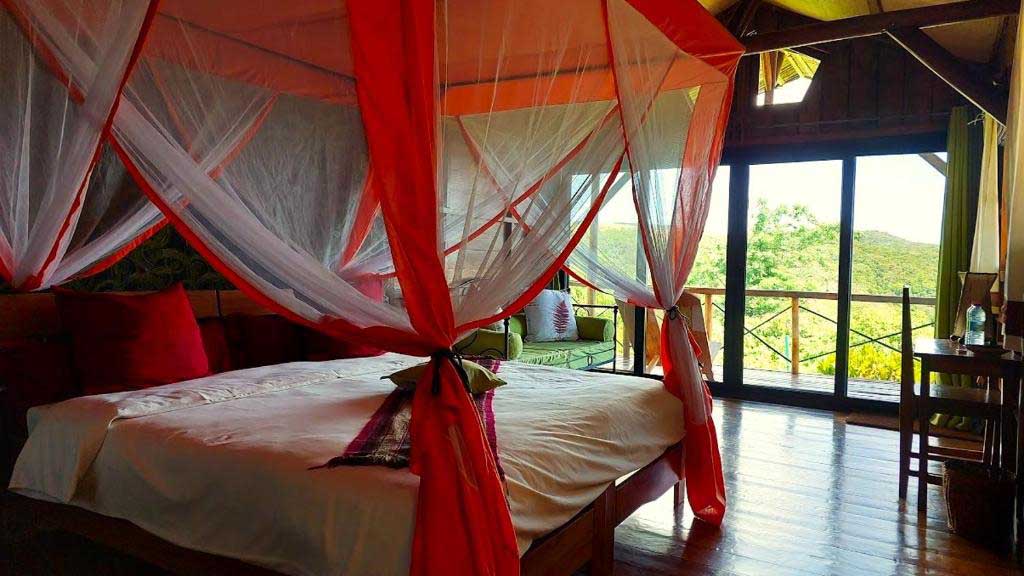
Grand Hotel Diego
A four-star hotel in Antsiranana, both guest rooms and suites are available. Guest rooms offer a TV, minibar, and air conditioning, with suites offering Wi-Fi, a workspace, and a lounge. The hotel also features a swimming pool, spa, and several dining options.
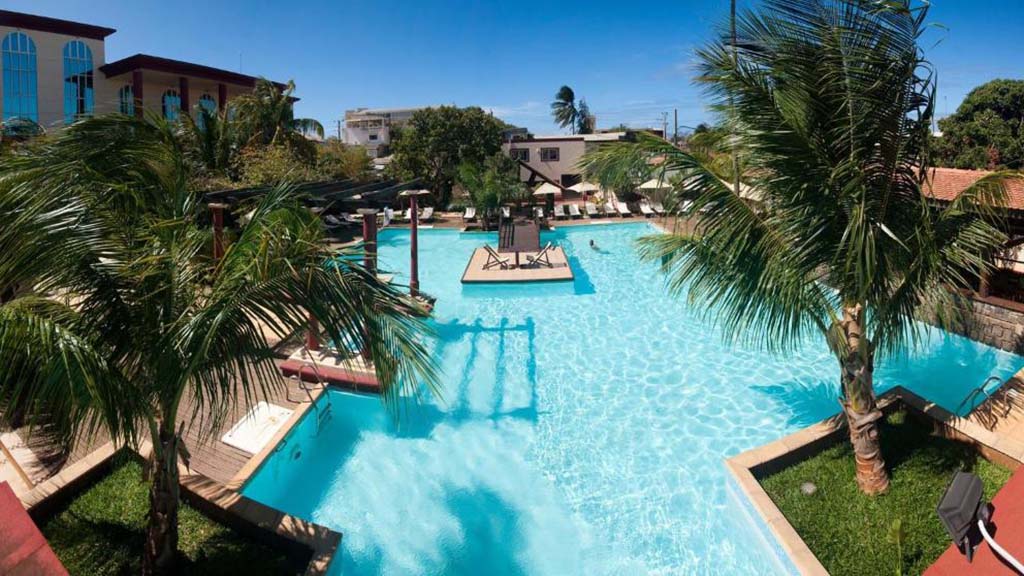
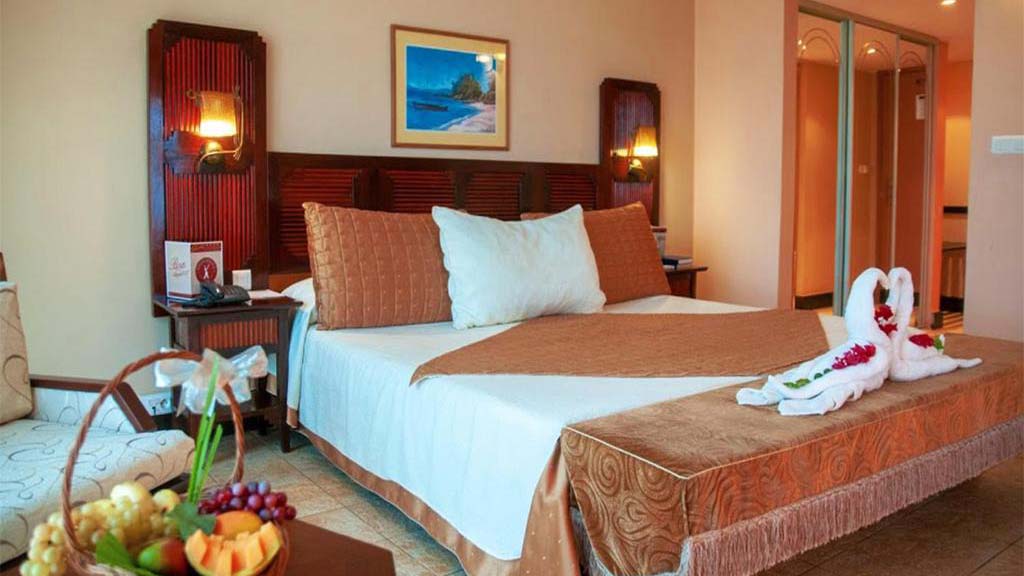
Palissandre Hotel & Spa
Conveniently located in central Antananarivo, each room features Wi-Fi, air conditioning, and city views. Guests can enjoy the outdoor pool, garden lounge, fitness centre, and French restaurant.
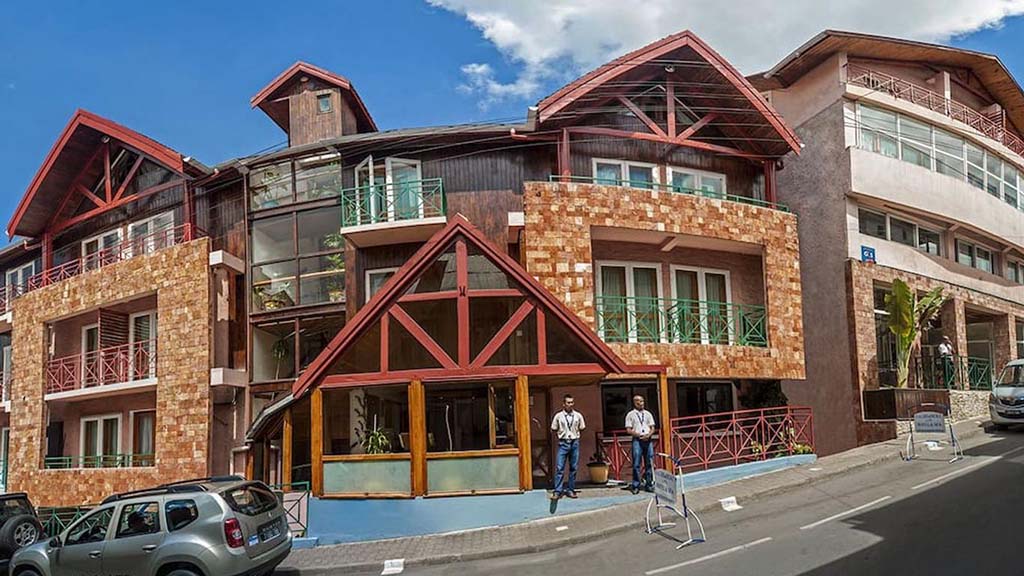
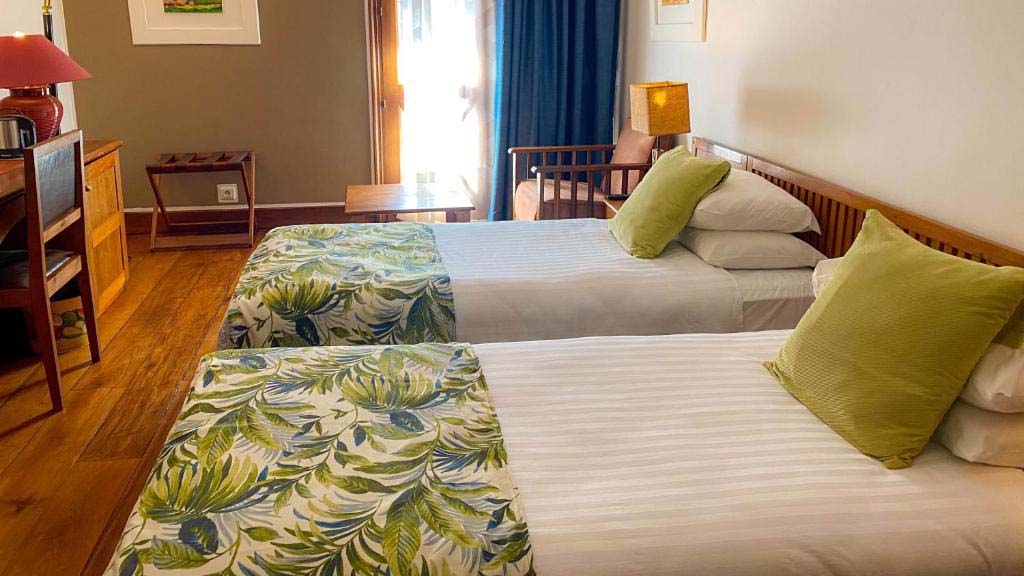
Sakatia Dive Centre, based at Sakatia Lodge, is certified as a National Association of Underwater Instructors (NAUI) Dream Destination, meaning it offers the highest standard of safety, training, and environmental stewardship.
Using their two dedicated dive boats, they have access to 20 dive sites around Nosy Be and Nosy Sakatia, each between 1 km and 20 km from the resort. Conditions and dive sites chosen vary depending on the tides and time of year.
This shop also specialises in night and fluro dives, using a blue light torch and mask filter to observe bio-fluorescence after dark.
Miora: Just a 15-minute boat ride away, this large plateau reef is suited to divers of all abilities. Stingrays, triggerfish, and mantis shrimp are often seen. Maximum depth 19m
Tim’s Reef: Named after a guest who loved diving here, this beautiful site is only two minutes from the lodge. It’s renowned for its galaxea and halomitra coral and nudibranchs. Green turtles are often spotted as well. Maximum depth 16m.
Tagada: This drop-off site features large gorgonian coral. At 20km off the coast, its open water location means pelagic species are sometimes seen as they pass by. Maximum depth 26m.
Mahavelona: This wreck dive is best for expert divers, with changing currents and visibility. A thriving reef is also found at this site, with Moray eels and octopus sometimes seen. Maximum depth 26m.
Banc des Licornes: This beginner-friendly location is a pristine coral reef, home to many stonefish, stingrays, and rhinopias. Eagle and manta rays also pass through regularly. Maximum depth 18m.
Banc des Fusiliers: This spot is popular as a second dive location, about 10km behind Nosy Sakatia. Macro is the drawcard here, but large schools of fish are also often seen, including snapper, grouper, and barracuda. Maximum depth 20m.
Boboss lalina: Positioned behind Nosy Sakatia, this dive site is best visited on a rising tide. It’s a good site for macro and crocodile fish, scorpionfish, and stonefish. Maximum depth 21m.
Mitsio Wreck: A shrimp trawler sunk in 2004 to create this wreck dive site. It’s a popular place to spot barracuda, snapper, scorpionfish, and stonefish. Maximum depth 27m.
Sakatia Reef: The resort’s namesake reef is just a ten-minute boat ride away and offers an easy dive for all abilities and lots of marine life. With a biodiverse seabed, it’s particularly popular for macro diving. Maximum depth 17m.
Pricing for Madagascar Diving & Tsingy Adventure
| 12-day exploration from Nosy Be’s prime diving locations to the vast Montagne d'Ambre National Park, Madagascar |
|||||
|---|---|---|---|---|---|
| Per Person pricing | |||||
| 6 nights at Sakatia Lodge, including breakfast 2 nights at Ankarana Lodge, including half board 1 night at Nature Lodge, including half board 1 night at Le Grand Hotel Diego, including half board 1 night at Palissandre Hotel & Spa, including breakfast Airport transfers as specified 10 x scuba dives at Sakatia Lodge Lunch on days 7-10 Services of local guides in Parks and Reserves Activities and excursions as mentioned Park entrance and Reserve fees unless otherwise stipulated |
|||||
| Excluded | |||||
| International Flights Domestic flight from Diego Suarez to Antananarivo Scuba equipment rental Additional scuba dives Nitrox Pre and post tour accommodation Optional activities Meals & drinks not specified Personal expenses such as gratuities and telephone calls Travel insurance |
|||||
| Valid to Dec 31, 2026 | AUD | EUR | |||
| Per person twin share rate | 3100 | EUR | | | 3100 | |
| Domestic Flight Diego Suarez to Antananarivo | 380 | EUR | | | 380 | |
| This resort's prices are in EUR and include all givernment taxes. The AUD prices shown are based on the current exchange rate. The price paid in AUD will be based on the actual exchange rate at the time any payments are made. | |||||

